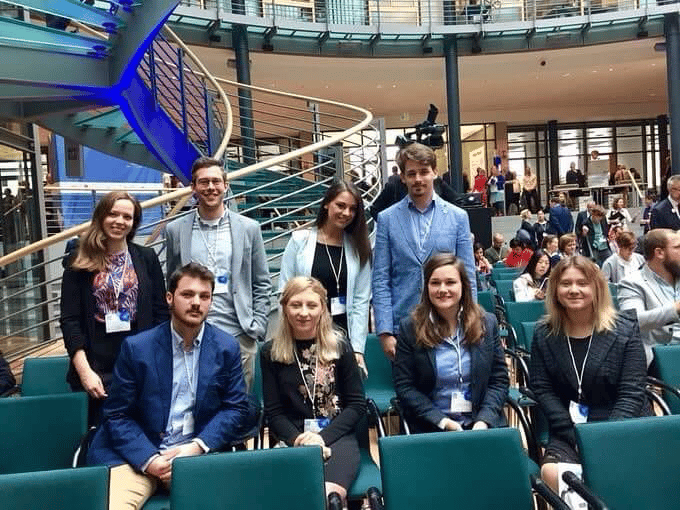My name is Giacomo Martinis, and I am part of the Coordination Committee of the European Students’ Association for Cultural Heritage (ESACH). In this post, you shall find some information on the initiative that gave rise to this series of blog posts, touching upon how the project started and how it works as to give you an idea of how you can participate and more broadly get involved in some of the activities we propose.
Written by: Giacomo Martinis.
The project is a joint-initiative that started as a result of the partnership between ESACH and the European Heritage Tribune (EHT), carried out under the patronage of Europa Nostra. Our goal is to strengthen collaboration between students and early professionals engaged in the cultural heritage field, providing them with a platform for expression aiming to empower the emerging and diversified perspectives they carry.
Since October 2020, we organise a series of webinars titled ESACH Talks, which draw together short presentations under topics differing monthly and address the contemporary discourses and practices most relevant to our field of interest: Cultural Heritage.
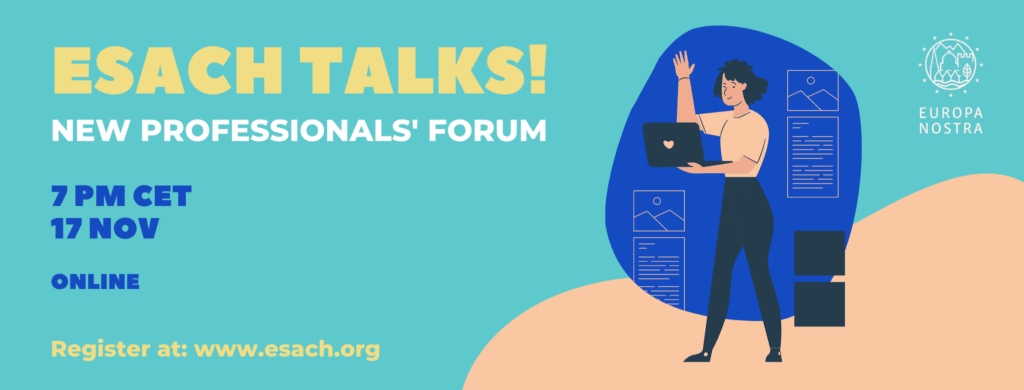
ESACH is run by committed young volunteers, grouped in different sections that correspond to the diverse initiatives of the association, and the selection of the presentations for the ESACH Talks is made by the respective group in collaboration with the publications team. Prospective presenters upload a 300 words abstract in which they outline the content and slant of their presentation, and the selection is made on the basis of adherence to the monthly topic and originality in approaching the specific topic.
The event is preceded by fruitful exchanges between the selected presenters and the ESACH Talks team, which helps in outlining the presentations, while, on the day of the webinar itself, this is opened by a key-note speaker with remarkable experience in the overall theme. The following presentations consist in a short slide-accompanied exposition which is eventually coupled with a Q&A session to open up debate opportunities to the public. As a concluding element, participants divide into breakout rooms of smaller size, which provide ground for a more informal conversation between the presenters and the participants on the matter discussed and on similar case-studies, maximising the exchange opportunities on the principles of peer-to-peer learning.
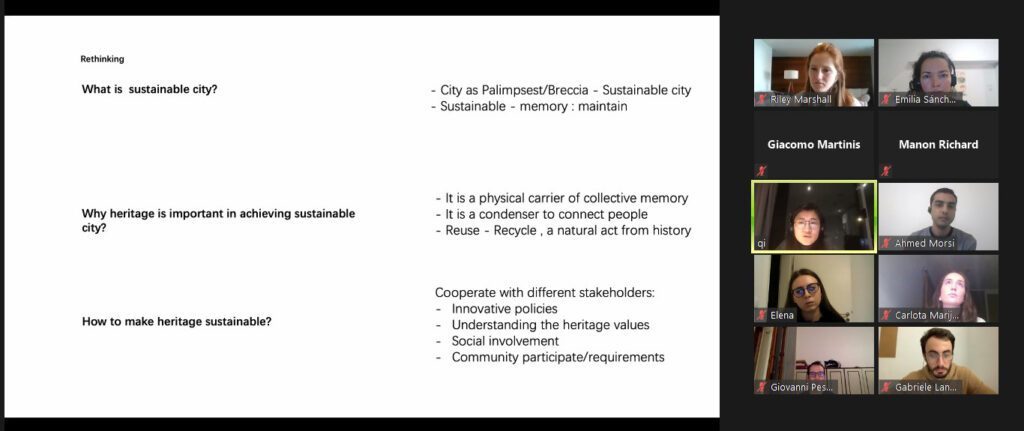
After the event, the presenters have the opportunity of continuing the experience with the production of an article of the same format that you find on this page. The debate developed during the webinar then incorporates into the matter of the article, and authors further develop their case-study in collaboration with the ESACH editorial board.
The text submitted then goes through peer-review and is eventually edited by the EHT Editor-in-Chief in the form of a blog post, and shared through the two organisations social media channels to further extend the possibilities of exchange and witness the rich engagement of the emerging generations in the cultural heritage field.
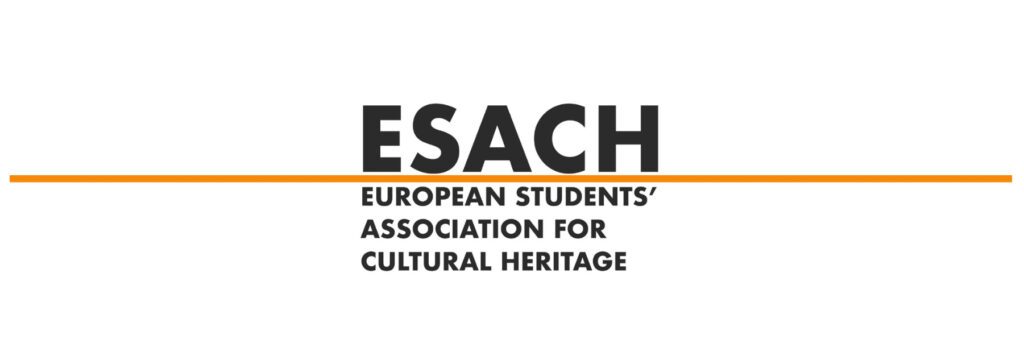
You should now have all the elements to allow you to join us in this project and shall you want to know more about our work, we invite you to have a look at our websites, at the ESACH YouTube channel as at this very page and deep into the colourful approaches to cultural heritage of our members! Particularly, if you would like to submit an abstract for the upcoming ESACH Talks, we encourage you to refer to the events section on our website and stay engaged for future issues that may be relevant to your work and interests. We look forward to hearing your voice!
About the author
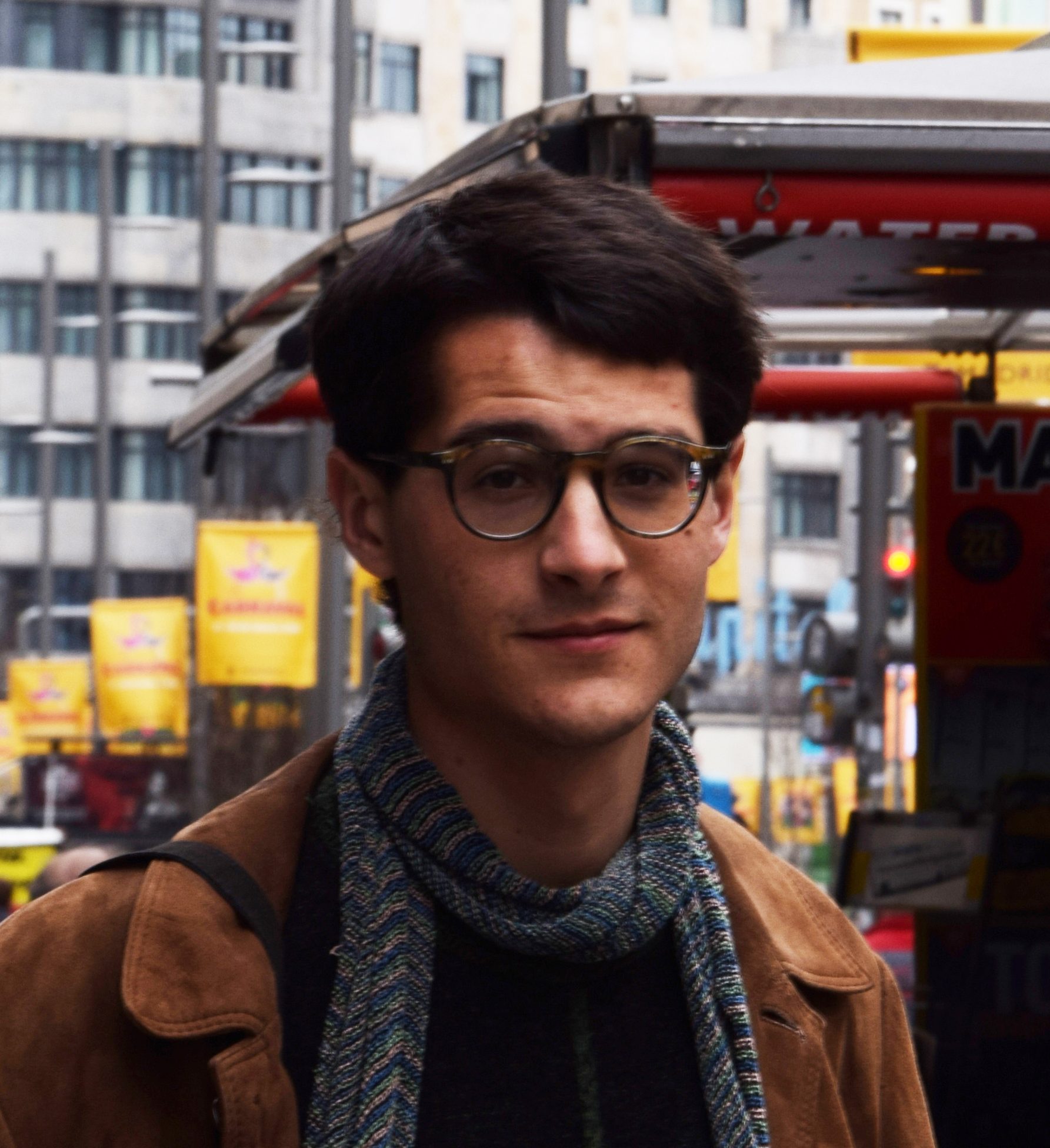
Giacomo Martinis is an Architectural History graduate from UCL and a French-Italian trained conservation architect. He is particularly keen on cultural theories of modernity and how they relate to built heritage preservation conceptions and practices, especially when it comes to intercultural and shared legacies.
- Email: esach.editor@gmail.com
- Website: esach.org
- Twitter: @esach_spirit
- Facebook: @ESACHspirit
- Instagram: @esach_spirit
- YouTube: ESACH Channel

